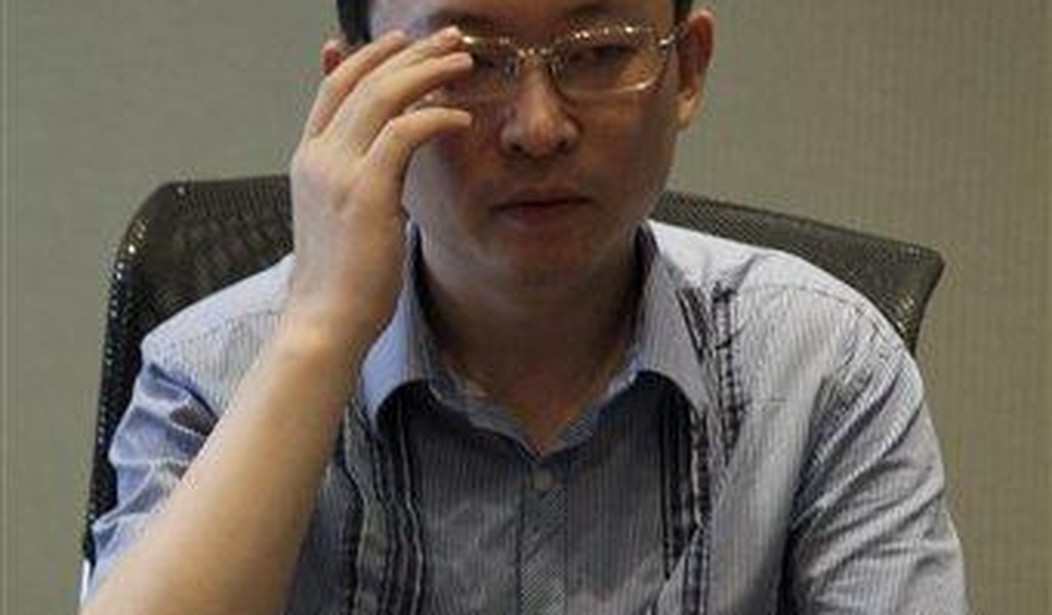China is shameless about stealing intellectual property and industrial secrets. But what you might not be aware of is China’s blatant impersonations of internal dissidents and even foreign critics as they seek to not only delegitimize them but also ruin their reputations and destroy their credibility.
It’s a state-sponsored endeavor that is sometimes an inconvenience and sometimes extraordinarily dangerous. Swatting is a common tactic, as noted China watcher Andrew Phelan can attest. As he was preparing to welcome his elderly mother, police barged into his house and told him he was under arrest.
A Chinese-Australian reporter received an email from Phelan threatening to rape and kill her. The police confirmed that the email contained his correct address so they raided his home, seizing laptops, phones, and an external hard drive. Only after going through his files did the police admit they made a mistake.
Phelan worries, “What if some people might say, ‘Did he actually send that email?’” he asked.
That is precisely the point. Phelan is part of a new and growing club of people whose names and identities are being hijacked and used for nefarious purposes. It’s a disparate group stretching across the globe and contains activists, journalists, academics and lawyers. All are tied together by one common thread — they criticize China.
One prominent Australian artist opened an anti-Chinese Communist exhibition in Berlin. Despite enormous pressure from Beijing, the gallery went ahead with the exhibit.
After the exhibit closed, the artist noticed a string of Twitter accounts in his name. The artist, named Badiucao, believes there are several aims by the Chinese in setting up these fake accounts.
Badiucao believes the faux account campaign has many aims: to stop people following the real Badiucao and seeing what he is actually saying; to have fake Badiucaos say things that would discredit him; to use phishing links to trick his supporters into revealing private information and jeopardizing their own safety; and to directly impair his income through sending people to a fake online store of his work, or “even worse,” he told me, to “scam people for money” at these fake stores and further damage his name.
The fact is, the impersonations are becoming more common and more dangerous.
Attacks take myriad forms, from threatening letters, calls and cyberattacks to bricks thrown through windows and mysterious break-ins. In extreme circumstances, people have been plucked from streets thousands of miles from Beijing and transported to China, such as the Hong Kong bookseller and Swedish citizen Gui Minhai, who was in Thailand when he disappeared in 2015. He remains in Chinese detention today.
Those targeted typically came from the Chinese diaspora, however, and it is only recently that people of other nationalities have found themselves affected. It’s also only recently that the use of fake identities has entered the playbook. And it’s only in the last few months, or even weeks, that it’s mushroomed to an alarming degree.
“During the almost quarter century that I’ve been working as a China correspondent, I’ve learned enough to know how the Chinese operate if they want someone to shut up. And yet I am also shocked. As far as I know, Western journalists are rarely treated this heavy-handedly,” wrote Marije Vlaskamp, a reporter for de Volkskrant (a Dutch daily) this past April, after a bomb threat was made in her name, using her real phone number, which led to the Chinese Embassy and the Dutch prime minister’s official residence in The Hague being cordoned off.
China is upping the pressure because it knows that no one is going to stop it or call it out. The Chinese know their enemy well and realize that this kind of psychological warfare against critics and dissidents is very effective in neutralizing the message.
Once again, we have clear evidence that the Chinese are playing to win while the West — especially the United States — is playing by rules that Europeans invented 200 years ago.
Guess who’s going to win in the end unless we find a way to fight back.










Join the conversation as a VIP Member